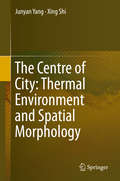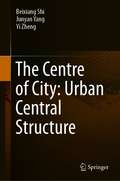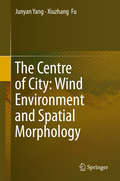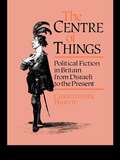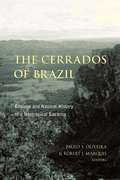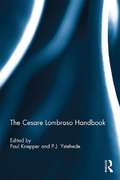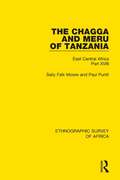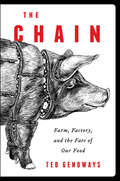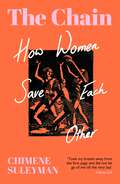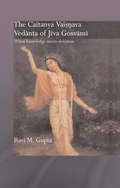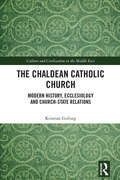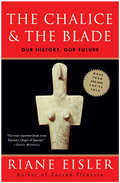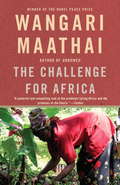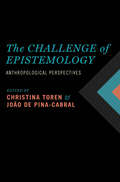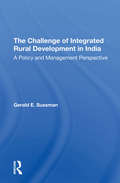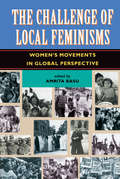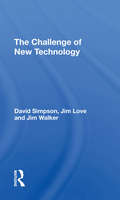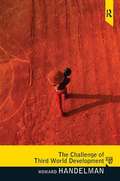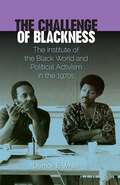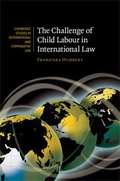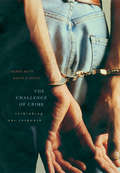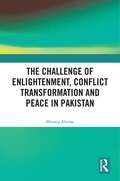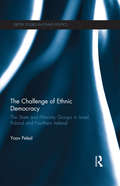- Table View
- List View
The Centre of City: Thermal Environment and Spatial Morphology
by Junyan Yang Xing ShiA major objective of this monograph is to identify the impact of thermal environment on urban center district. It provides in-depth evaluation and research on the correlation between urban spatial morphology indicator and urban thermal environment. In addition, the distribution characteristics of thermal environment and urban morphology units sample are also evaluated intensively. Furthermore, it analyses from three aspects of urban planning, architecture and landscape respectively and includes 35 concrete measures that could be brought into practice on reducing negative impact of urban thermal environment. Through 500 vivid figures, graphs and diagrams it illustrates the relationship between urban morphology and urban thermal environment. The analysis software employed by the author includes Ecotect, ENVI-met and Ray-man. It intertwines the quantitative research of both thermal environment and urban morphology through in-depth analysis and urban microclimate simulation. It makes a valuable contribution for the research on urban environment and urban morphology.
The Centre of City: Urban Central Structure
by Yi Zheng Junyan Yang Beixiang ShiThis book presents the latest research results related to urban center and urban center. It expounds the theoretical connotation, development models, hierarchical function, and spatial layout of the urban central structure through over 200 figures and tables. In addition, it analyzes the threshold characteristics, structural hierarchy, spatial characteristics, and development rules of urban central structure through field research and quantitative researches on the major urban central structures in Asia. Meanwhile, how to solve the issue of construction and layout of urban central structure in planning and design practice is also covered. The book reveals the laws and spatial characteristics of urban central structure and provides a valuable guide both for urban designers and planners as well as researchers and students working in urban design and planning fields. It sheds new light on better understanding of the urban central structure.
The Centre of City: Wind Environment and Spatial Morphology
by Junyan Yang Xiuzhang FuThis book focuses on the urban wind environment of urban center district. Through urban spatial morphology and urban space units it provides in-depth evaluation and research on the correlation between urban spatial morphology indicator and urban wind environment. Based on urban spatial morphology indicators, such as building density, FAR, average building height and wind environment parameter, it conducts quantitative analysis and statistic evaluation to acquire the influence relationship between urban planning indicators and wind speed. In addition, based on the 13 typical urban morphology units it also analyses the different situation of wind environment. Finally it provides the optimized strategies on urban planning, architecture and landscape. It intertwines the quantitative research between wind environment and urban morphology through in-depth analysis and urban microclimate simulation. It makes a valuable contribution for the research on urban environment and urban morphology.
The Centre of Things: Political Fiction in Britain from Disraeli to the Present
by Christopher Harvie`This is an excellent survey of the British political novel.' - Contemporary Review
The Cerrados of Brazil: Ecology and Natural History of a Neotropical Savanna
by Paulo Oliveira Robert MarquisWhile the imperiled Brazilian rainforest has been the focus of considerable international media attention and conservation efforts, the massive grasslands of Brazil—known as the cerrados—which cover roughly a quarter of its land surface and are among the most threatened regions in South America, have received little notice. This book brings together leading researchers on the area to produce the first detailed account in English of the natural history and ecology of the cerrado/savanna ecosystem. Given their extent and threatened status, the richness of their flora and fauna, and the lack of familiarity with their unique ecology at the international level, the cerrados are badly in need of this important and timely work.
The Cesare Lombroso Handbook
by Paul Knepper P. J. YstehedeThe Italian criminologist Cesare Lombroso (1835 – 1909) is the single-most important figure in the founding of criminology and the study of aberrant conduct in the human sciences. The Cesare Lombroso Handbook brings together essays by leading Lombroso scholars and is divided into four main parts, each focusing on a major theme. Part one examines the range and scope of Lombroso’s thinking; the mimetic quality of Lombroso; his texts and their interpretation. The second part explores why his ideas, such as born criminology and atavistic criminals, had such broad appeal. Developing this, the third section considers the manners in which Lombroso’s ideas spread across borders; cultural, linguistic, political and disciplinary, by including essays on the science and literature of opera, ‘La donna delinquente’ and ‘Jewish criminality’. The final part investigates examples of where, and when, his influence extended and explores the reception of Lombroso in the UK, USA, France, China, Spain and the Philippines. This text presents interdisciplinary work on Lombroso from academics engaged in social history, history of ideas, law and criminology, social studies of science, gender studies, cultural studies and Jewish studies. It will be of interest to scholars, students and the general reader alike.
The Chagga and Meru of Tanzania: East Central Africa Part XVIII
by Sally Falk Moore Paul PurittThe Chagga and the Meru are related peoples living on the rich banana-grove and coffee-plantation slopes of Mount Kilimanjaro and Mount Meru in Northern Tanzania. While the literature on the Chagga is overwhelmingly large little is generally available on the Meru. This volume, originally published in 1977, provided for the first time a concise, comprehensive and well-documented overview of Chagga society, history and cosmology, drawing not only on the authors’ field work but on the works of the prolific Germans: Gutmann, Raum and others. It also detail original research and uses reports of the famous Meru Land Case to illuminate Meru society and economy and their adjustment in turn to Arusha, German and British colonial, and independent government influences.
The Chain: Farm, Factory, and the Fate of Our Food
by Ted GenowaysA powerful and important work of investigative journalism that explores the runaway growth of the American meatpacking industry and its dangerous consequences“A worthy update to Upton Sinclair’s The Jungle and a chilling indicator of how little has changed since that 1906 muckraking classic.” — Mother Jones“I tore through this book. . . . Books like these are important: They track the journey of our thinking about food, adding evidence and offering guidance along the way.” —Wall Street JournalOn the production line in American packing-houses, there is one cardinal rule: the chain never slows. Under pressure to increase supply, the supervisors of meat-processing plants have routinely accelerated the pace of conveyors, leading to inhumane conditions, increased accidents, and food of questionable, often dangerous quality.In The Chain, acclaimed journalist Ted Genoways uses the story of Hormel Foods and its most famous product, Spam—a recession-era staple—to probe the state of the meatpacking industry, from Minnesota to Iowa to Nebraska. Interviewing scores of line workers, union leaders, hog farmers, and local politicians and activists, Genoways reveals an industry pushed to its breaking point—while exposing alarming new trends, from sick or permanently disabled workers to conflict between small towns and immigrant labor. A searching exposé in the tradition of Upton Sinclair, Rachel Carson, and Eric Schlosser, The Chain is a mesmerizing story and an urgent warning about the hidden costs of the food we eat.
The Chain: The Relationships That Break Us, the Women Who Rebuild Us
by Chimene SuleymanIn January 2017, Chimene Suleyman was on her way to an abortion clinic in Queens, New York with her boyfriend, the father of her nascent child. It was the last day they would spend together. In an extraordinary sequence of events, Chimene was to discover the truth of her boyfriend's life: that she and many other women had been subtly, patiently and painfully betrayed.In this spellbinding memoir, she exposes one man's control over many women and the trauma he left behind, and celebrates the sisterhood that formed in his wake despite - and in spite of - him. Exploring how women are duped every day by individuals, she interrogates how society itself continually allows this to happen. She demonstrates that, no matter how intelligent, educated or self-aware they might be, over time a woman can be played into performing the age-old role of giver and nurturer: self-sacrificing and subordinate. Both a devastating personal testimony and a searing indictment of persistent misogyny, The Chain is a book for any woman who has questioned her relationship and buried her doubts, for any woman who can't quite identify the source of her unease and for any woman who has been sheltered by the fierce protection of her female friends.
The Chaitanya Vaishnava Vedanta of Jiva Gosvami: When Knowledge Meets Devotion (Routledge Hindu Studies Series)
by Ravi M. GuptaThe Chaitanya Vaishnava tradition is famous for its depth of devotion to Krishna, the blue-hued Deity. Chaitanya Vaishnavas are known for having refined the practice and aesthetics of devotion into a sophisticated science. This imposing devotional edifice was constructed upon a solid foundation of philosophical argument and understanding. In this book, Ravi Gupta sheds new light on the contribution of Chaitanya Vaishnavism to the realm of Indian philosophy. He explores the hermeneutical tools employed, the historical resources harnessed, the structure of the arguments made, and the relative success of the endeavor. For most schools of Vaishnavism, the supporting foundation consists of the philosophical resources provided by Vedanta. The Chaitanya tradition is remarkable in its ability to engage in Vedantic discourse and at the same time practice an ecstatic form of devotion to Krishna. The prime architect of this balance was the scholar-devotee Jiva Gosvami (ca. 1517 - 1608). This book analyses Jiva Gosvami's writing concerning the philosophy of the Vedanta tradition. It concludes that Jiva's writing crosses 'disciplinary boundaries', for he brought into dialogue four powerful streams of classical Hinduism: the various systems of Vedanta, the ecstatic bhakti movements, the Puranic commentarial tradition, and the aesthetic rasa theory of Sanskrit poetics. With training in and commitments to all of these traditions, Jiva Gosvami produced a distinctly Chaitanya Vaishnava system of theology.
The Chaldean Catholic Church: Modern History, Ecclesiology and Church-State Relations (Culture and Civilization in the Middle East)
by Kristian GirlingThis book provides a modern historical study of the Chaldean Catholic Church in Iraq from 2003 to 2013, against a background analysis of the origins and ecclesiological development of the Chaldean community from the sixteenth century onwards. The book offers an insight into the formation of Chaldean ecclesiological identity and organisation in the context of the Chaldeans as a community originating from the ecclesial traditions of the Church of the East and as an Eastern Catholic Church in union with the Holy See. The book argues for the gradual and consistent development of a Chaldean identity grounded and incarnated in the Mesopotamian-Iraqi environment, yet open to engaging with cultures throughout the Middle East and West Asia and, especially since 2003, to Europe, North America and Australasia. It also examines the effects of religious and administrative policies of the governors of Mesopotamia-Iraq on the Chaldeans, from their formation in the sixteenth century until the installation of the new Chaldean patriarch, Louis Raphael I Sako, in March 2013. Furthermore, the book provides a unique analysis of the history of Iraq, by placing the Chaldeans fully into that narrative for the first time. Providing a thorough overview of the history of the Chaldeans and an in-depth assessment of how the 2003 invasion has affected them, this book will be a key resource for students and scholars of Middle East Studies, Modern History, History of Christianity, as well as for anyone seeking to understand the modern status of Christians in Iraq and the wider Middle East.
The Chalice and the Blade: Our History, Our Future
by Riane EislerThe author presents her view of the human condition based on an analysis of prehistory and history which exposes a global shift to patriarchy.
The Chalice and the Blade: Our History, Our Future---Updated With a New Epilogue
by Riane EislerThe phenomenal bestseller, with more than 500,000 copies sold worldwide, now with a new epilogue from the author--The Chalice and the Blade has inspired a generation of women and men to envision a truly egalitarian society by exploring the legacy of the peaceful, goddess-worshipping cultures from our prehistoric past.
The Challenge For Africa
by Wangari MaathaiWangari Maathai,Nobel Peace Prize laureate and founder of the Green Belt Movement, offers a refreshingly unique perspective on the challenges facing Africa, even as she calls for a moral revolution among Africans themselves, who, she argues, are culturally deracinated, adrift between worlds. The troubles of Africa today are severe and wide-ranging. Yet what we see of them in the media, more often than not, are tableaux vivantes connoting poverty, dependence, and desperation. Wangari Maathai presents a different vision, informed by her three decades as an environmental activist and campaigner for democracy. She illuminates the complex and dynamic nature of the continent, and offers “hardheaded hope” and “realistic options” for change and improvement. With clarity of expression, Maathai analyzes the most egregious “bottlenecks to development in Africa,” occurring at the international, national, and individual levels–cultural upheaval and enduring poverty among them–and deftly describes what Africans can and need to do for themselves, stressing all the while responsibility and accountability. Impassioned and empathetic,The Challenge for Africais a book of immense importance. From the Hardcover edition.
The Challenge Of Epistemology
by Joao de Pina-Cabral Christina TorenEpistemology poses particular problems for anthropologists whose task it is to understand manifold ways of being human. Through their work, anthropologists often encounter people whose ideas concerning the nature and foundations of knowledge are at odds with their own. Going right to the heart of anthropological theory and method, this volume discusses issues that have vexed practicing anthropologists for a long time. The authors are by no means in agreement with one another as to where the answers might lie. Some are primarily concerned with the clarity and theoretical utility of analytical categories across disciplines; others are more inclined to push ethnographic analysis to its limits in an effort to demonstrate what kind of sense it can make. All are aware of the much-wanted differences that good ethnography can make in explaining the human sciences and philosophy. The contributors show a continued commitment to ethnography as a profoundly radical intellectual endeavor that goes to the very roots of inquiry into what it is to be human, and, to anthropology as a comparative project that should be central to any attempt to understand who we are.
The Challenge Of Integrated Rural Development In India: A Policy And Management Perspective
by Gerald E SussmanIn 1952, India launched a massive and enthusiastic effort to reach the 360 million people in its 550,000 villages with a national program of economic and social reconstruction. Known as Community Development, the program provided an innovative model of rural development for both Third World nations and the aid-giving countries of the West. Although the program achieved its goal of providing service coverage to the nation, its many implementation problems and the lack of quantifiable cost-effectiveness led critics to label it a failure and resulted in its submergence into the Ministry of Food and Agriculture in 1966. More recently, however, partly as a result of the social dislocations following the "Green Revolution," there has been renewed interest in Community Development as the Indian government searches for ways of effectively implementing a strategy of integrated rural development. It is recognized that a repeat of the CD program is not the answer; but an analysis of the program allows the identification of the elements critical to good administration—and political survival. Drawing on extensive interviews with Indian and American participants, this book critically appraises the Community Development program. Dr. Sussman examines the successful pilot project at Etawah, then documents the many problems—organizational, political, and logistical—that were encountered in the attempt to replicate it on a nationwide scale, and that eventually led to its demise. From his analysis emerges the question of what kind of government strategies can best equip rural populations to participate in development. Admitting the difficulties still to be faced, he concludes on a note of guarded optimism based on recent efforts in both India and the U.S. that combine a systems approach with the use of a range of development strategies.
The Challenge Of Local Feminisms: Women's Movements In Global Perspective
by Amrita BasuThis pathbreaking book provides for the first time an overview of the genesis, growth, gains, and dilemmas of women's movements worldwide. Unlike most of the literature, which focuses on the industrialized Western world, this volume devotes greater attention to the postcolonial states of Asia, Africa, and Latin America. The book challenges the assumptions that feminism can transcend national differences and, conversely, that women's movements are shaped and circumscribed by national levels of development. All the authors reject the notion, proposed by its detractors and champions alike, that feminism is of middle-class origins and Western inspiration. Instead they seek to locate women's movements within the terrain from which they emerge.Virtually all the authors are from the countries or communities about which they write the few exceptions are women who have spent lengthy periods studying and living in the region. Most are scholars, often in women's studies, and many are closely associated with the movements they describe. Thus, these writers share a commitment to the substantive concerns as well as the collective processes of women's movements. As a key book for the Fourth World Conference on Women in Beijing, this volume will be essential reading for anyone interested in the global scope and implications of feminism.
The Challenge Of New Technology
by Jim Walker David Simpson Jim LoveThis book looks at what has actually happened when new technology has been deployed in an industrial and commercial environment. It considers the economic impact of new technology on three groups of organisations: firms, governments and trade unions.
The Challenge Of Third World Development (Seventh Edition)
by Howard HandelmanUpdated in its 7th edition, The Challenge of Third World Development examines political, economic, and social change in countries in Africa, Asia, Latin America, and the Middle East. Exploring common issues and problems in these regions, this text helps readers grasp the structural dynamics and human stories behind development. Accessibly written for readers of any social science background, The Challenge of Third World Development immerses readers in issues like democratization, global warming, and women's changing roles and encourages them to understand what drives these issues at an individual, national, and global level.
The Challenge of Blackness
by Lerone BennettIn "The Challenge of Blackness", Bennett critically examines what it means to be black in America now and in the past. He also looks at the attitudes expressed towards Blacks in the media and as an artist, as well as the attitudes of Blacks towards Blacks and Whites on Blacks. A thought-provoking books by one of America's most prolific and renowned writers.
The Challenge of Blackness: The Institute of the Black World and Political Activism in the 1970s (Southern Dissent)
by Derrick E. WhiteThe Challenge of Blackness examines the history and legacy of the Institute of the Black World (IBW), one of the most important Black Freedom Struggle organizations to emerge in the aftermath of the assassination of Dr. Martin Luther King Jr.A think tank based in Atlanta, the IBW sought to answer King's question "Where do we go from here?" Its solution was to organize a broad array of leading Black activists, scholars, and intellectuals to find ways to combine the emerging academic discipline of Black Studies with the Black political agenda.Throughout the 1970s, debates over race and class in the Unites States grew increasingly hostile, and the IBW's approach was ultimately unable to challenge the growing conservatism. By using the IBW as the lens through which to view these turbulent years, Derrick White provides an exciting new interpretation of the immediate post-civil rights years in America.
The Challenge of Child Labour in International Law
by Franziska HumbertChild labour remains a widespread problem around the world. Over 200 million children can be regarded as child labourers, and about 10 million children are involved in producing either agricultural or manufactured products for export. Franziska Humbert explores the status of child labour in international law. Offering a wide-ranging analysis of the problem, she explores the various UN and ILO instruments and reveals the weaknesses of the current frameworks installed by these bodies to protect children from economic exploitation. After assessing to what extent trade measures such as conditionalities, labelling and trade restrictions and promotional activities can reduce child labour, she suggests an alternative legal framework which takes into account the needs of children.
The Challenge of Crime: Rethinking Our Response
by Henry RuthThe development of crime policy in the United States for many generations has been hampered by a drastic shortage of knowledge and data, an excess of partisanship and instinctual responses, and a one-way tendency to expand the criminal justice system. Even if a three-decade pattern of prison growth came to a full stop in the early 2000s, the current decade will be by far the most punitive in U.S. history, hitting some minority communities particularly hard. The book examines the history, scope, and effects of the revolution in America's response to crime since 1970. Henry Ruth and Kevin Reitz offer a comprehensive, long-term, pragmatic approach to increase public understanding of and find improvements in the nation's response to crime. Concentrating on meaningful areas for change in policing, sentencing, guns, drugs, and juvenile crime, they discuss such topics as new priorities for the use of incarceration; aggressive policing; the war on drugs; the need to switch the gun control debate to a focus on crime gun regulation; a new focus on offenders' transition from confinement to freedom; and the role of private enterprise. A book that rejects traditional liberal and conservative outlooks, The Challenge of Crime takes a major step in offering new approaches for the nation's responses to crime.
The Challenge of Enlightenment, Conflict Transformation and Peace in Pakistan
by Moonis AhmarThis book looks at the process of cultural enlightenment in the context of Pakistan. It undertakes an interesting and in-depth research focusing on how the world’s second largest Muslim state can learn from Europe’s heritage of enlightenment. It studies why Pakistan lacks a process of awakening and what the scope of cultural enlightenment in Pakistan is against the backdrop of militant Islam. The author argues that cultural enlightenment can help promote positive conflict transformation in Pakistan and discusses the ways in which challenges to establishing a culture of reasoning, tolerance, accommodation, social justice and peace can be dealt with. A unique contribution, this book will be of interest to students and researchers of philosophy, political science, history, international relations, South Asian studies and religious studies. It will also appeal to think tanks, policymakers and general readers interested in these topics.
The Challenge of Ethnic Democracy: The State and Minority Groups in Israel, Poland and Northern Ireland (Exeter Studies in Ethno Politics)
by Yoav PeledEthnic democracy is a form of democratic ethnic conflict regulation in deeply divided societies. In The Challenge of Ethnic Democracy, Yoav Peled argues that ethnic democracy is constituted by the combination of two contradictory constitutional principles: liberal democracy and ethno-nationalism, and that its stability depends on the existence of a third, mediating constitutional principle of whatever kind. This central argument is supported by an analysis of the history of three ethnic democracies; Northern Ireland under Unionist rule, where ethnic democracy was stable for almost 50 years (1921-1969), then collapsed; The Second Polish republic (1918-1939), where ethnic democracy was written into the constitution but was never actualised; and Israel within its pre-1967 borders, where ethnic democracy was stable for 35 years (1966-2000) but may now be eroding. This book examines the different trajectories of the case studies, demonstrating that Poland lacked a third, mediating constitutional principle, while Israel and Northern Ireland did have such a principle – civic republicanism in Israel, and populism in Northern Ireland. The collapse of ethnic democracy in Northern Ireland resulted from the weakening of populism, that depended on British monetary subsidies for its implementation, whilst the erosion of ethnic democracy in Israel resulted from the decline of civic republicanism since the onset of economic liberalization in 1985. Dealing with ethnic democracy in a comparative framework, this book will appeal to students, scholars and researchers of Sociology, Political Science and Middle East Studies.
